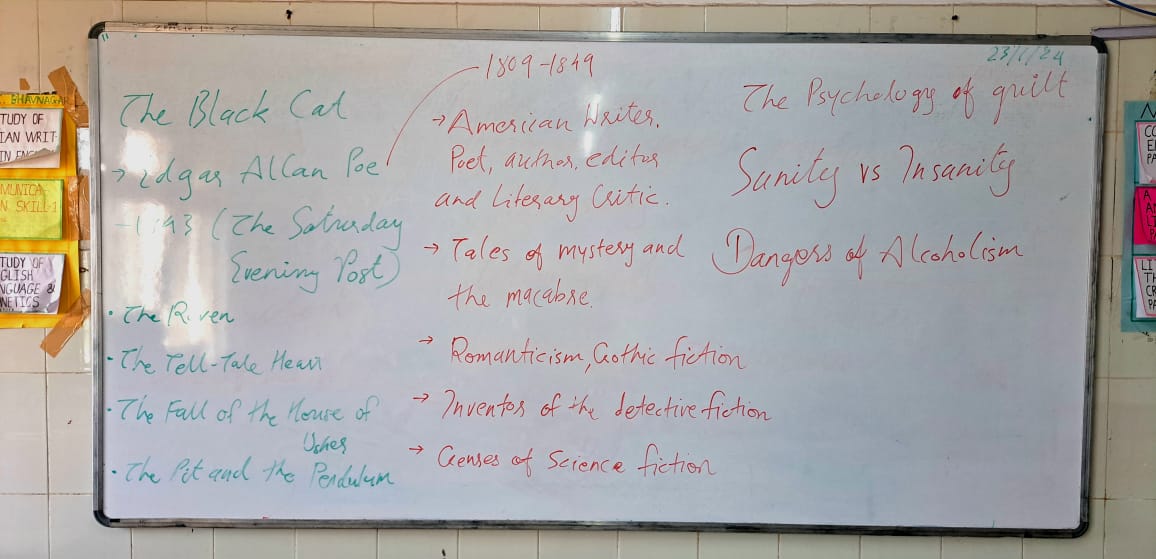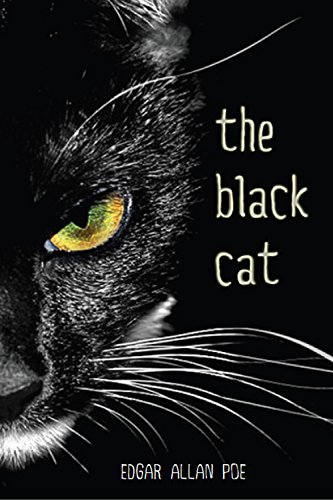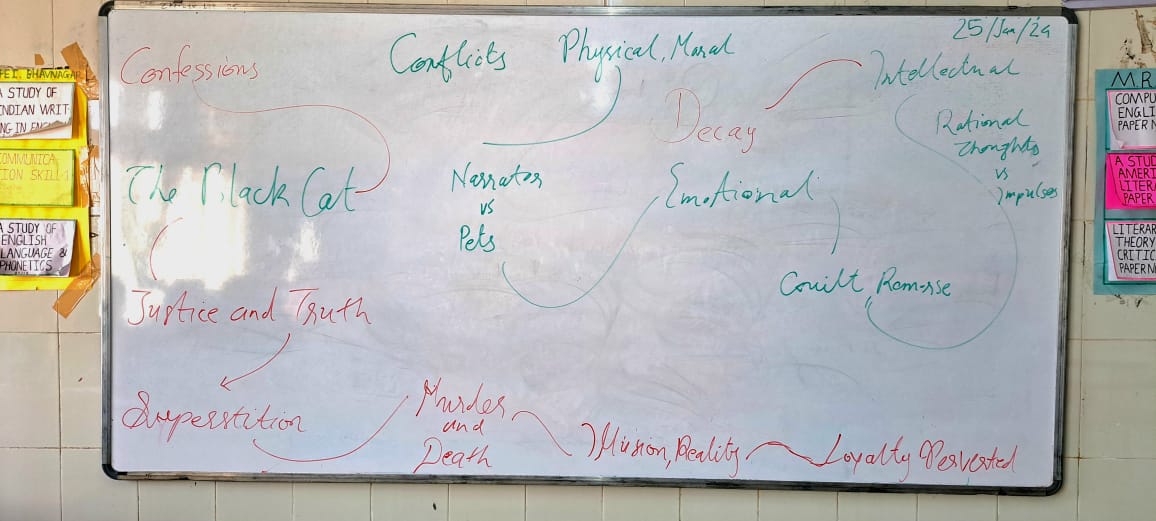Araby By James Joyce
 |
| ARABY by James Joyce |
Question: 1 - Write a movie review based on the movie Rockford.
For Example:
● What are the similarities between the movie Rockford and the poem Araby by James Joyce?
● What types of inner turmoil does the protagonist go through in the story and the movie?
● What types of issues have been pointed out in the movie?
● What did you learn from the story and movie?
☞︎︎︎ 𝐴𝑛𝑠 :
"Rockford" is a 1999 Indian English-language coming-of-age drama film written by Nagesh Kukunoor. The film navigates the younger crowd. For example - James Joyce's short story "Araby" has been compared to the Rockford movie.
There is little variation between the themes of both 'Rockford' and 'Araby', as in the 'Rockford' film, the same feelings sink down between the teenage boys. And in 'Araby' the protagonist falls in love with his friend's sister 'Mangan's', likes him. Both the film and the short story have some charm.
In both the short story and the film, the protagonist and a teenage boy go through ups and downs (like many extreme situations). In 'Araby' the young boy experiences the emotional turmoil of love and a lot of reality. Similarly in 'Rockford' the first boy deals with friendship, love and many social activities, facing a lot of travel. Both stories deal with, and serve as, many of the conflicts and challenges that come their way.
 |
| Movie Screening |
The movie 'Rockford' explores many different types of issues. That resonates with many people. Many social pressures are faced. This short story deals with themes of friendship, loyalty, honest work and the pursuit of one's dreams.
All that happens in "Rockford" is a clash of personalities. And the hero faces many struggles keeping in mind the society and his family.
Both the short story "Araby" and the film "Rockford" have a lot to learn and a lot of problems. It does whatever the situation is faced with sincerely.
At the end, the film 'Rockford' and the short story 'Araby' talk about a lot of big challenges. There were many things within these two that are applicable to us as well. We become memorable forever.
 |
| Class Movie Screening |
Question: 2 - Write a note on the major themes of the story.
☞︎︎︎ 𝐴𝑛𝑠 :
There are many major themes of "Araby" but some are discussed here.
1. Religion & Catholicism
2. Coming of Age
3. Escapism & the Exotic
4. Love & Sexuality
5. Symbolism
➪ Blindness
➪ Light & Darkness
➪ Brown
1. Religion & Catholicism :
The narrator of “Araby” is surrounded by religion. He attends a Roman Catholic school and all of the people around him, just like he himself, are steeped in the Catholic religion that held sway in Ireland at the time when the story was set. Joyce does not clearly indicate how strongly the narrator believes in his faith, but Catholicism plays a large role in his upbringing and he often explains things through Catholic ideas and imagery.
Most obviously, the narrator over and over again thinks about and describes his crush, Mangan's sister, in religious terms. At one point he compares her to a “chalice” that he is protecting from a “throng of foes,” a reference that seems to compare her to the Holy Grail. At other times, he literally seems to worship her: “Her name sprang to my lips at moments in strange prayers and praises which I myself did not understand.” That the narrator doesn't even understand his prayers to Mangan's sister seems to imply that he is not idolizing Mangan's sister on purpose. Instead, it seems as if his Catholic upbringing has defined the form of how he understands anything for which he feels strong emotion. Up until this point, being a child, the narrator has only ever experienced familial love and love for God (or at least an attempt to love God, one founded in the religious language he is surrounded by), which he does not know how to differentiate from romantic love. And so he thinks of romantic love in religious terms.
2. Coming of Age :
One of the central issues in James Joyce's “Araby” is growing up. The narrator, who is a grown man who uses mature language to describe his youthful experience, reflects back on his experience with the "Araby" market, providing small insights from an adult perspective. The fact that the story is told from an adult perspective indicates that the story is about growing up: the narrator is reflecting back on a formative time during his childhood.
'The protagonist's development is reflected in his relationships with his friends. As the protagonist becomes consumed by his infatuation with Mangan's sister, he loses interest in playing with his friends as well as in school. Suddenly, the things that used to matter to him now seem less important, and he even begins to feel superior to his friends, deeming his everyday life, which now seems to stand in between him and his crush, “ugly monotonous child's play.” He also begins to spend less time with his friends and to observe them from an outsider's perspective. On the night of the Araby market, he watches them from the front window: “Their cries reached me weakened and indistinct and, leaning my forehead against the cool glass, I looked over at the dark house where she lived.” The glass both literally and metaphorically separates the narrator from his friends as they play in the street.
3. Escapism & the Exotic :
In the text both Mangan's sister and the 'Araby' market offer an escape from the ordinary, from the dull, brown picture of Dublin that the narrator otherwise describes as the world he lives in. The narrator makes his boredom with everyday life very clear when he refers to his former boyhood antics as the “career of our play,” making even play seem like a kind of work. Similarly, his descriptions of school paint a picture of busywork, with a “master” most concerned about whether his pupils might be “beginning to idle.”
4. Love & Sexuality :
One of the central issues of “Araby” is the narrator's developing crush on Mangan's sister and the discovery of his sexuality. Joyce shows the protagonist's evolution by first describing his sheltered upbringing, and then using physical descriptions of Mangan's sister to highlight the protagonist's budding sexuality.
However, although clearly the protagonist is infatuated with Mangan's sister, Joyce gives little evidence that it is “love.” The narrator thinks of Mangan's sister only in in a physical way, includes no details about her personality, and basically shares no dialogue with her. The narrator's relationship with Mangan's sister is just a crush from afar, and that the narrator thinks of it as a love akin to religion only makes him seem more no I've.
Ultimately, as he tries and fails to buy a meaningful gift for Mangan's sister while overhearing the girl at the stall flirt with two young men, the narrator comes to the realization that he was motivated not by love but by vanity. That vanity seems to operate in two ways: First, in seeing the flirting of the girl with the boys at the stall, he sees that his sense of his own uniqueness in his feelings for Mangan's sister was incorrect, and that to see himself as being unique because of his “love” for her was therefore vanity. Second, he sees that his desire to please Mangan's sister came from his desire for her approval-not because he loved or cared about her as an individual.
5. Symbolism :
➪ Blindness :
The story uses the word “blind” to draw attention to the narrator's naiveté and isolation. He begins by describing the dead-end street where the narrator lives as “blind,” with the narrator's house being a lone abandoned house at the blind end, set off from the other houses.
➪ Light & Darkness :
The story uses a great deal of light and darkness in its descriptions. The story begins in the dark, with the “short days of winter” where the boys played in the “dark muddy lanes behind the houses.” And then the text follows the boys back to the street where the light from windows now illuminates the area.
➪ Brown :
The color brown is used repeatedly to symbolize the dullness of everyday Dublin. The houses are brown, and even Mangan's sister is described as a “brown-clad figure,” perhaps indicating that it was common to dress in brown clothes. Brown is used to emphasize how unexciting and oppressive Dublin is for the narrator in every way, both visually as well as in the everyday occurrences.
Thank you 🙏




























